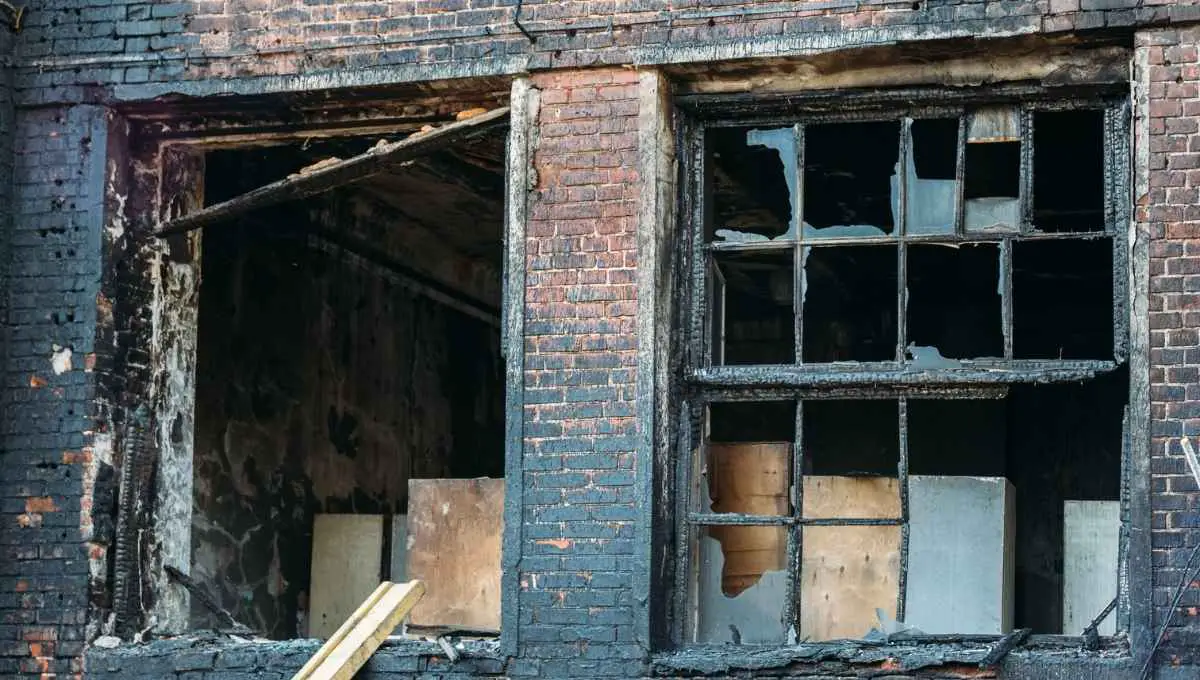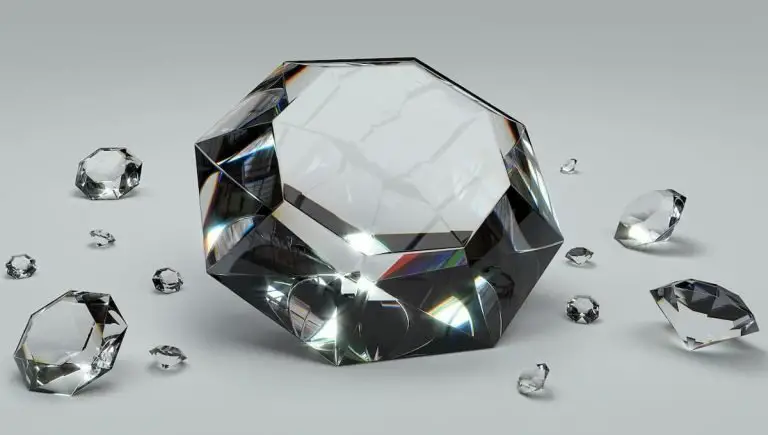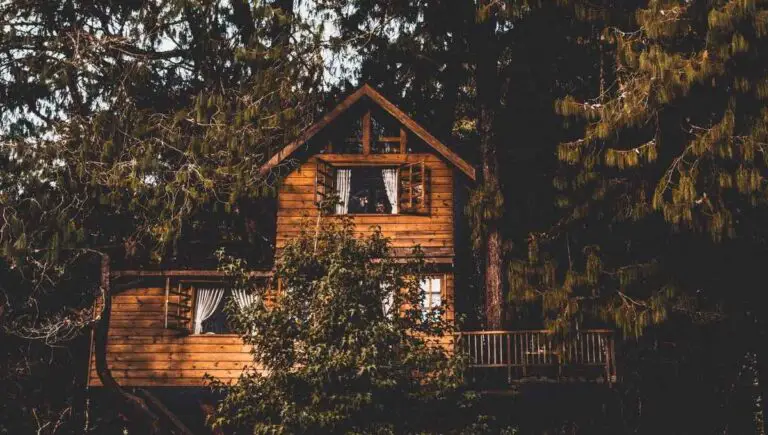Can You Burn Down a Brick House? (This Is What Happens)

If you’re thinking of building or buying a new house, you may be considering one made of brick because it won’t burn down easily, right? But are brick houses actually fireproof, and can you burn down a brick house accidentally?
Even though bricks are non-flammable, brick houses can still burn down because most homes are constructed using materials other than just brick. While the bricks themselves won’t burn, these other materials are flammable and will burn, potentially damaging the house’s structural integrity.
With that said, there are a few things to consider if you are thinking of building or buying a brick house based on its potential risk of burning down. You might still have a few burning questions left unanswered, but this blog post will hopefully extinguish them for you.
This post contains affiliate links from Amazon and other stores. This means Yard Blogger may earn a commission if you make a purchase using any of our links. Please refer to our full affiliate disclosure policy for full details.
Here’s a Quick Pro Tip!
Keep your home safe by making sure you have all the necessary measures in place to stop fires before they start or spread further.
1. Smoke Detector – It’s good to have multiple smoke detectors throughout your home to warn you of fires before they start or spread. We recommend the Kidde Smoke & Carbon Monoxide Detector.
2. Fire Extinguisher – In the case that a fire does happen, having a fire extinguisher in place can save your home as well as your life. We recommend the Amerex B402 fire extinguisher.
Can Brick Houses Catch Fire?
When a brick house is on fire, this is due to the fact that they are also made out of wood and other combustible materials such as paint. The fire resistance of brick is very high and if a brick house catches on fire, it’s not typically because of the brick but because of the other materials.
Brick, by its very nature, is fire-resistant because it is made in a fire kiln. The mortar that holds bricks together in a brick house is also fire-resistant to some extent.
So, technically, a brick wall is fire-resistance but when you start to add the other components of a house, such as wood and gas, the brick house can catch on fire.
Can a Brick House Withstand Fire?
A brick house has a better chance of withstanding fire than most other houses due to the fact that brick, by itself, is fire resistant. However, because houses are made of other materials like wood, paint, and other flammable materials, the fire resistance decreases.
When a brick house catches on fire, the parts of the house that are flammable will ignite first. When these parts of the house start to deteriorate, the brick walls won’t necessarily burn but their structure will be less stable causing them to collapse.
So, the bricks will be able to withstand the fire but whether or not the structure holds up will be the question.
You might also enjoy our post on How to Stop Neighbors From Setting off Fireworks Around You
What Does a Brick Fire Look Like?
A brick house on fire looks like a typical house fire but the fire tends to come out of the top of the house and through the windows. This is because the fire resistance of brick is so high it doesn’t tend to burn so the fire moves around the brick.
Usually, the brick walls will still be standing after the fire has stopped. In other cases, the destruction of the rest of the house will make the brick walls unstable and the walls will collapse.
Are Bricks Fireproof?
Bricks are fireproof since they are manufactured in a fire kiln. So, naturally, the fire resistance of brick is high since the fire actually makes the brick. Bricks can remain resistant to fire for up to four hours, which is on the highest side of fireproof-house-building materials.
Brick houses are therefore ideal for areas where there are wildfires. If the fire is coming from the outside, it’s likely that your home will remain intact.
However, if the fire starts inside then there is a higher chance that your home won’t make it. Regardless, the bricks will be able to withstand fire for one to four hours.
At What Temperature Does Brick Burn?
Depending on the type of brick and how it was made, bricks will start to burn at 2800 degrees Celsius. Fireclay bricks are the most popular brick used for the construction of houses and these ones fall into that burn range.
A brick wall would have to be exposed to a harsh fire for a long period of time (longer than four hours) before it starts to burn. The type of mortar used on the brick wall will also determine how fast the brick will start to burn. However, naturally, bricks are extremely fire-resistant.
What Happens to Bricks in a Fire?
When bricks are exposed to a fire, the brick does not absorb heat, but instead, reflects it. This is thanks to the low thermal conductivity a brick inherently has, thus the high fire resistance of brick. Therefore, the fire will bounce off the brick and will not cause it to burn.
In cases when there is an extreme fire lasting for more than four hours, the bricks will likely start to crack from the continued heat. If a brick wall begins to crack, it’s likely it can collapse.
What Does Fire Do to Bricks?
Since brick is naturally fire-resistant, it cannot burn when exposed to fire. However, if exposed to fire for long enough it will eventually start to crack or spall.
The brick will either crack through the middle or spall on the outside. Spalling is when an object begins to deteriorate from the outside- little chips of the brick will begin to fall off.
How Does Brick Behave in a Fire?
Thanks to brick’s low thermal conductivity, fire is reflected off brick and brick does not absorb much heat. If exposed to fire for a long period of time, the brick will start to crack or spall.
This is all due to the fact that brick is made from burned clay, so, the brick is exposed to fire in order to make it, resulting in brick becoming fire-resistant.
Does Brick Melt or Burn?
It is very unlikely for a brick to melt or burn, especially during a house fire. This is thanks to brick’s naturally inherited fire-resistant state. But, technically, a brick’s melting point is about 2800 degrees Celsius.
A house fire tends to get as hot as 1500 degrees Celsius, so, the likelihood of brick reaching its melting point is unlikely. When a brick gets that hot, it will likely just crack or chip, never melt or burn.
Are Bricks Flammable?
Bricks are very much not flammable. This is due to the fact that they are created within a fire kiln since they are burned clay. Naturally, bricks become fire-resistant once they are created.
If you are worried about wildfires or house fires, your brick home is one of the safest structures. The bricks will reflect the fire and not burn or melt thanks to the brick’s low thermal conductivity and high thermal resistance.
You might also enjoy our post on Neighbors Burning Trash? Here’s What to Do!
Why Is Fire Brick Resistant?
Fire brick has a different chemical composition than regular brick. The chemical composition is composed of certain elements that are more fire-resistant than a normal brick when combined.
Fire brick is used to make brick ovens, fireplaces, kilns, and fireboxes. The chemical composition- ceramic, ferric oxide, and other additives – of firebrick allow the thermal conductivity to be even lower than normal bricks, making the bricks, even more, fire resistant.
What Is the Fire Rating of a Single Brick Wall?
A single brick wall has a fire-resistance rating of one to four hours. The length of time depends on how thick the brick is.
The thicker the brick is, the higher the resistance rating will be. This basically means that brick will be able to resist fire for that amount of time. Any longer, the brick will begin to crack and break into pieces.
What Type of Brick Is Fireproof?
All bricks are fireproof but some are more fireproof than others. Firebrick is more fireproof than regular brick- bricks used to make houses. However, firebricks are mainly used for ovens and fireplaces.
All bricks are fireproof thanks to the fact that they are made within the fire to become strong and solid. But certain bricks have a different chemical composition than others that making the brick even more fireproof.
These bricks are typically used when it is known that the brick will be exposed to fire for a long amount of time.
What Are Fire Bricks Made Of?
Fire bricks have a chemical composition of 23% alumina and 73% silica. The rest is made up of ferric oxide and titanium.
A fire brick’s main purpose is to be able to withstand high temperatures while being constantly exposed to fire. Thanks to this unique composition of chemicals, just that is possible.
What is The Difference Between a Fire Brick and a House Brick?
A fire brick has a different chemical composition than a house brick which allows it to be more resistant to fire. Fire bricks are used in situations where brick is exposed to fire for a long period of time.
Fire bricks are naturally white and can be stained to become a different color that is desired. House bricks are made out of clay so they remain the same color and can’t be adjusted.
Fire bricks also are always perfectly rectangular whereas house bricks are rectangular but are not perfect and each one is different.
How Can You Tell if a Brick is Fireproof?
All bricks are fireproof but if you want to look out for fire bricks, which are more fireproof, look out for bricks that are white/yellow and perfect rectangles. These bricks are also heavier than your typical clay brick.
Be sure to look out for bricks that have a series of holes through them (on purpose). These bricks will crack more easily when they are exposed to fire for a long period of time and shouldn’t be used to construct houses.
Related Questions
What Is Bad About a Brick House?
Brick houses can be bad if you live in an area with a lot of earthquakes. This is because brick houses are not stable enough to withstand constant shifts of the surface they are built upon.
Brick homes are also expensive to build due to the increased labor and materials. They are also receptive to mold if they are not cleaned frequently and properly.
Speaking of mold… if you are ever considering cleaning mold with bleach, you might want to check out our blog post on why killing mold with bleach is probably a bad idea.
You might also enjoy our post on Why Killing Mold With Bleach is Probably a Bad Idea
Do Fire Bricks Crack?
Fire bricks are capable of cracking after a lot of time and heat. When the bricks become hot and cold they are constantly being stretched, which wears them out over time. Once they get weak, they begin to crack.
Again, this can take a very long time to happen. Fire bricks are built to last through extensive heat and use, so they will only crack once you have definitely gotten good use out of them.
Clay Brick Fire Rating
Clay brick is classified as an A-1 noncombustible material by Exova Warringtonfire. This is the best classification achievable for construction products.
Although clay bricks are naturally fireproof due to their manufacturing process, Warringtonfire felt it was necessary to do continued testing for absolute assurance. After testing, clay brick’s received an A-1 classification.
Are Masonry Bricks Fireproof?
Masonry bricks are indeed fireproof. They are not as fireproof as fire bricks but fire bricks are not typically used to build houses.
Masonry bricks are as non-flammable as you need since their melting points are higher than most fires. They will not burn or melt, instead of crack if exposed to fire for longer than four hours continuously.
Why Is Firebrick So Expensive?
Firebrick is so expensive because it’s a very labor-intensive process to make them since they have to be cooked in a special kiln and also are composed of a very specific composition of chemicals.
Firebrick is also extremely useful and there is not much that can replace it if you also want to equally replace the quality.
Final Thoughts
In our humble opinion, we think brick houses are extremely safe and a great option if you are worried either about wildfires or house fires.
Not to mention, they are so timeless and classy. Your brick house will never look dated as long as you keep your brick nice and clean.






